Enhancing observation skills Math Worksheets for Ages 4-7
10 filtered results
-
From - To
Enhance your child's observation skills with our engaging math worksheets designed for ages 4-7. These worksheets focus on developing critical thinking, attention to detail, and cognitive abilities through fun and interactive activities. By incorporating colorful visuals and relatable themes, children will explore shapes, patterns, and numbers while sharpening their observational skills. This foundational aspect of learning builds confidence and fosters a love for math, setting the stage for future success. Ideal for both classroom and home use, our worksheets make math enjoyable and accessible for young learners, helping them thrive in a natural and engaging way. Discover the joy of learning today!
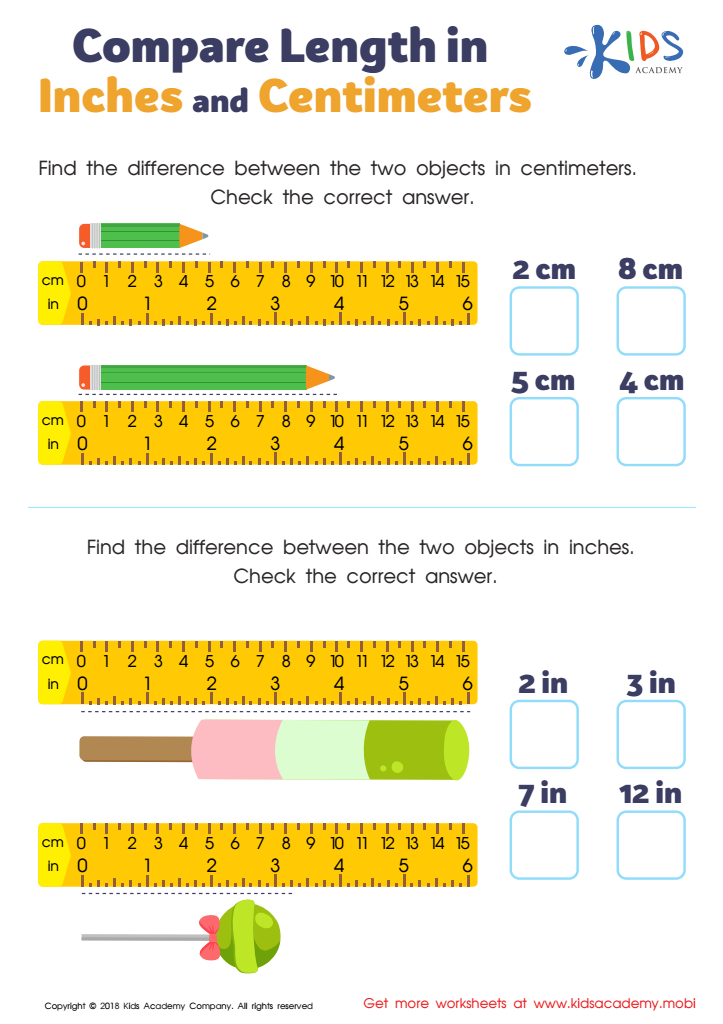

Compare Length in Inches and Centimeters Worksheet


Pollinator Positions Worksheet
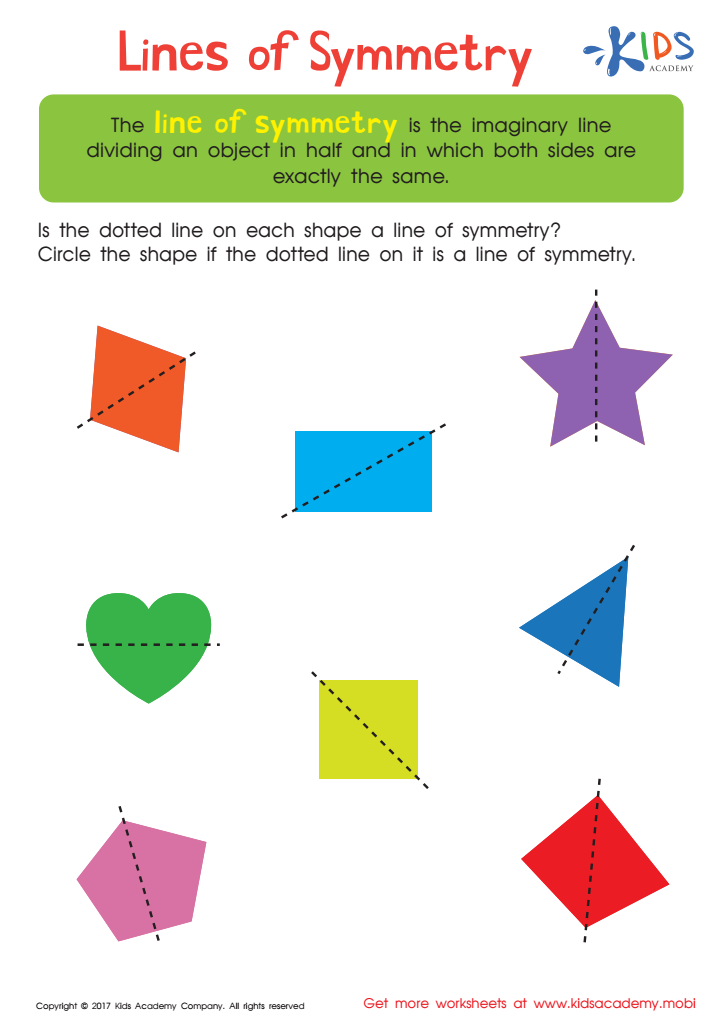

Lines of Symmetry Printable
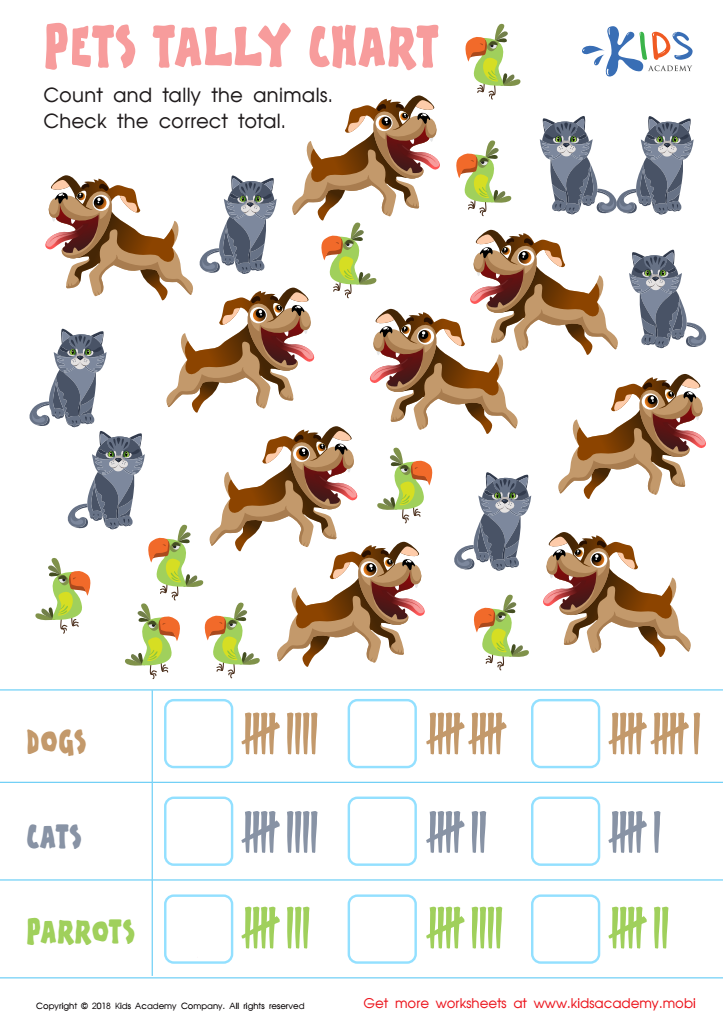

Pets Tally Chart Worksheet
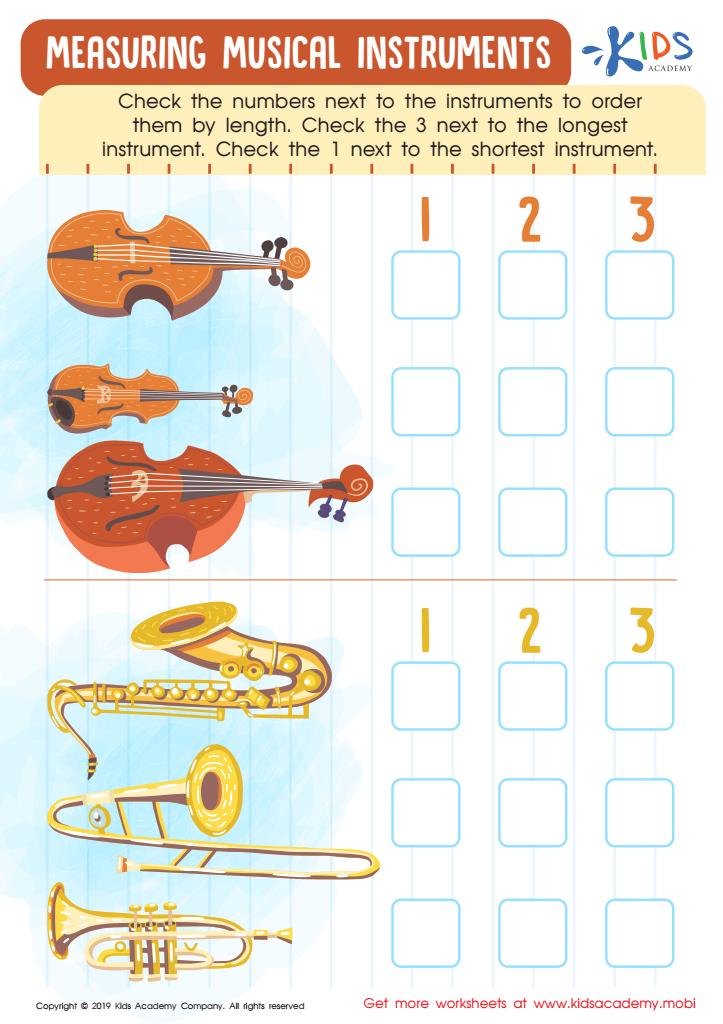

Measuring Musical Instruments Worksheet
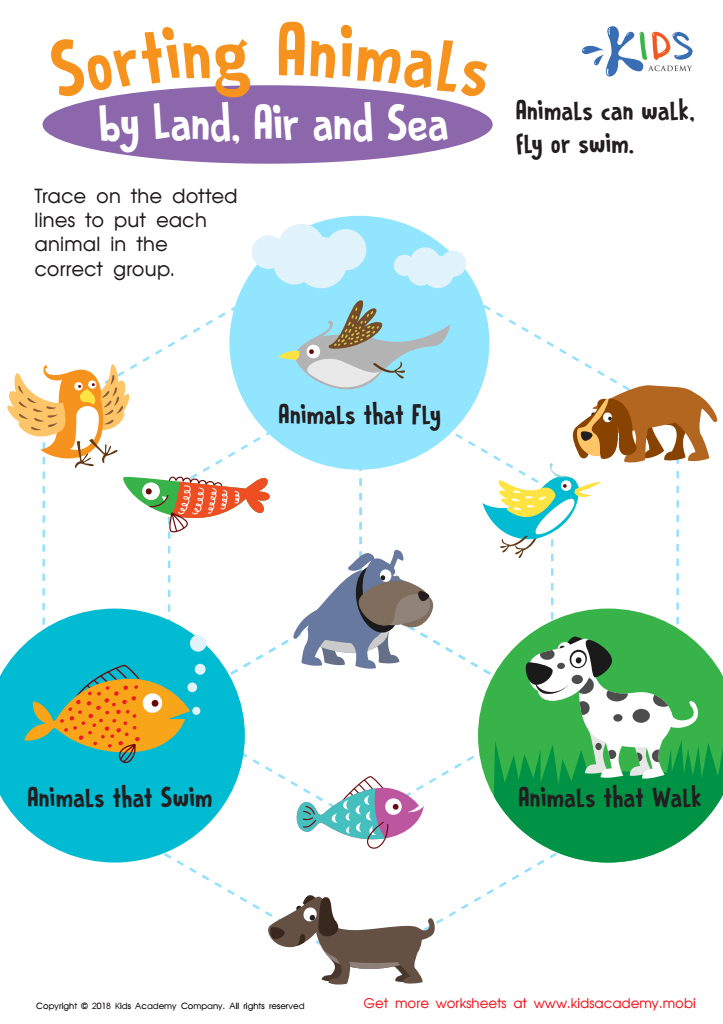

Sorting Animals by Land, Air and Sea Worksheet
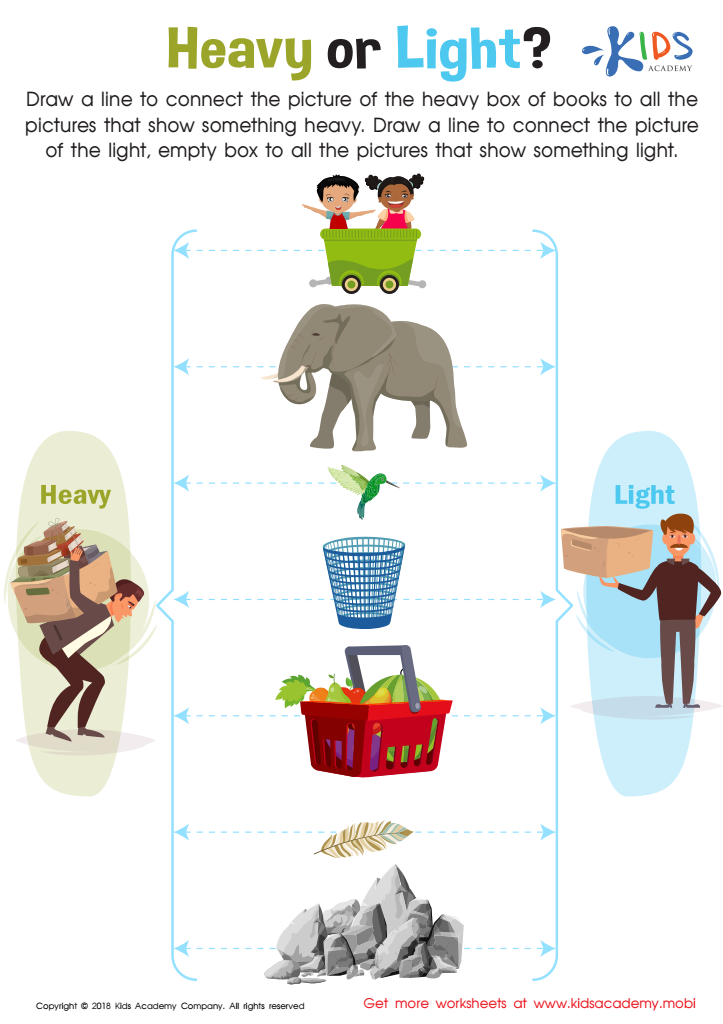

Heavy or Light? Worksheet
Enhancing observation skills in mathematics for children aged 4-7 is crucial for their overall cognitive development. At this formative stage, children begin to form foundational concepts in math through hands-on experiences. By developing strong observation skills, children can recognize patterns, quantify objects, and understand spatial relationships, all of which are fundamental to mathematical understanding.
Parents and teachers play a vital role in nurturing these skills. When children learn to observe their environment carefully, they become active learners, engaging more deeply with the world around them. This active engagement fosters curiosity and critical thinking, enabling children to analyze situations, make connections, and draw conclusions—essential components of mathematical reasoning.
Additionally, enhancing observation skills encourages a growth mindset. Children who hone these skills learn to tackle complex problems without fear, setting the stage for resilience and problem-solving capabilities as they progress academically.
Teaching observation through everyday experiences, such as counting fruits or comparing shapes, reinforces math concepts naturally and meaningfully. Ultimately, by prioritizing observation skills, parents and educators equip children with essential tools that extend beyond math, promoting not just academic success but also a lifelong love of learning.

 Assign to My Students
Assign to My Students
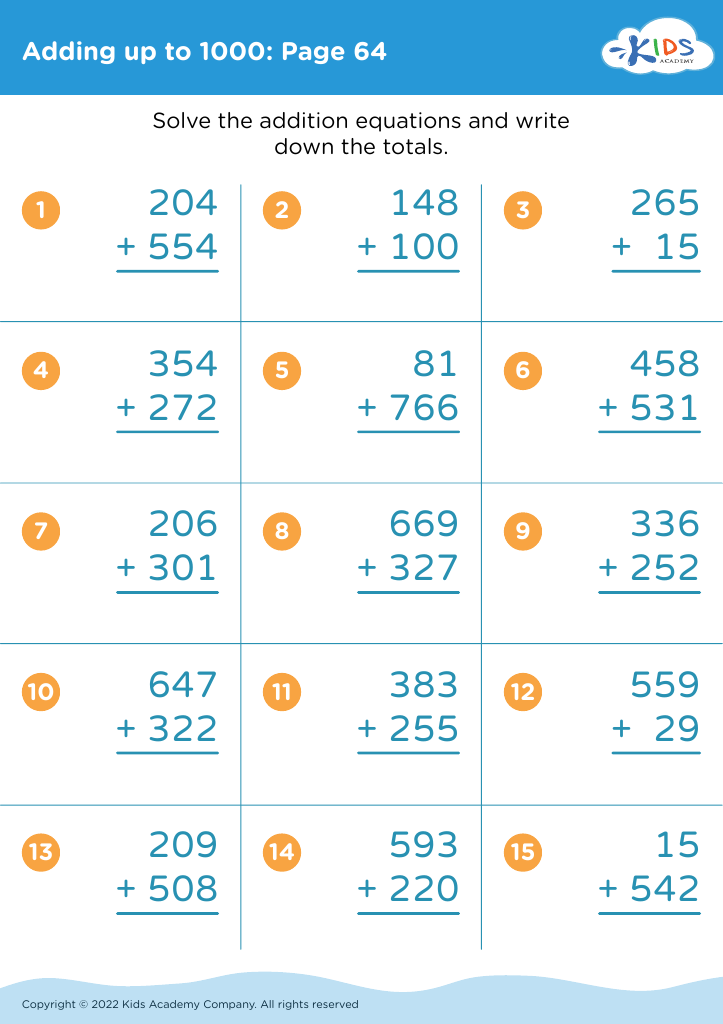

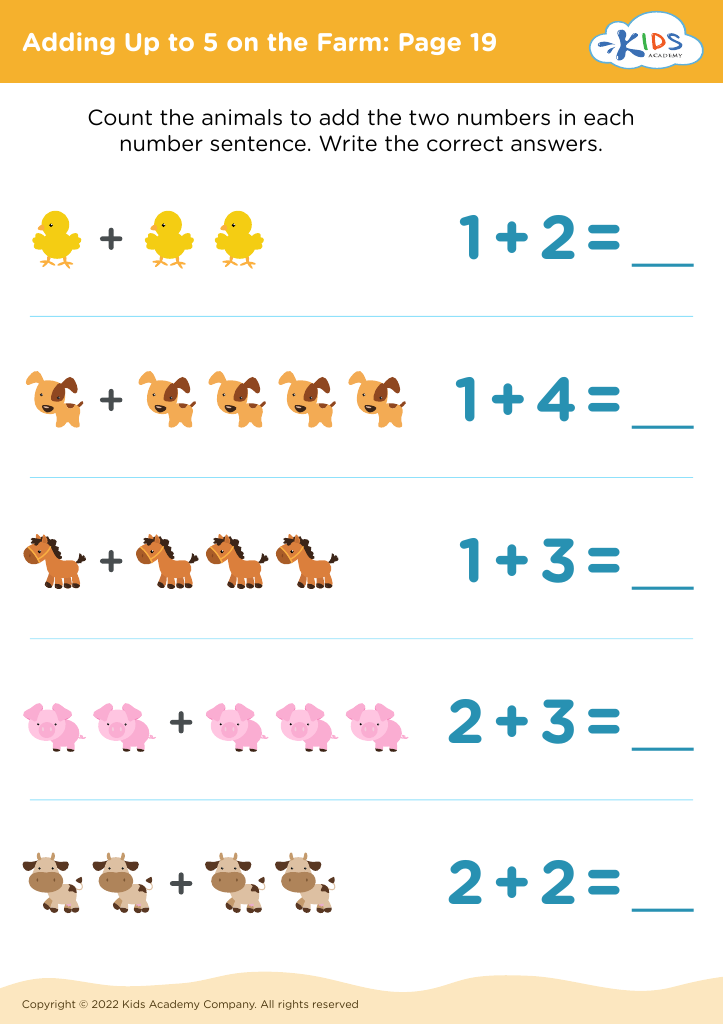





.jpg)










